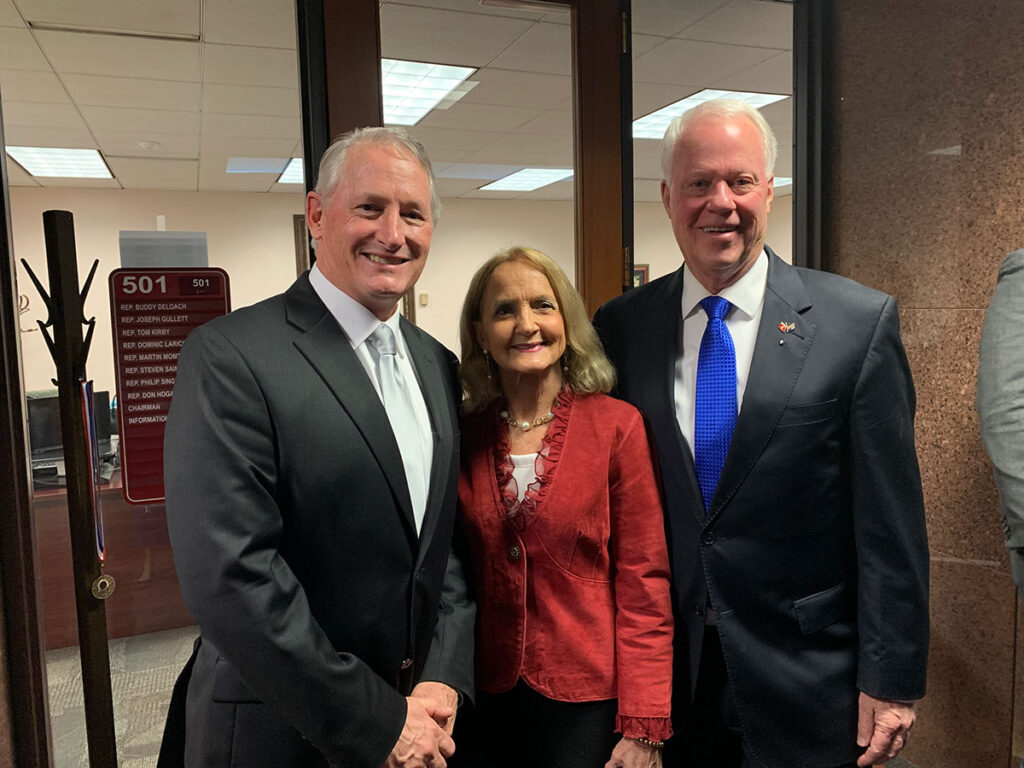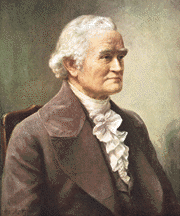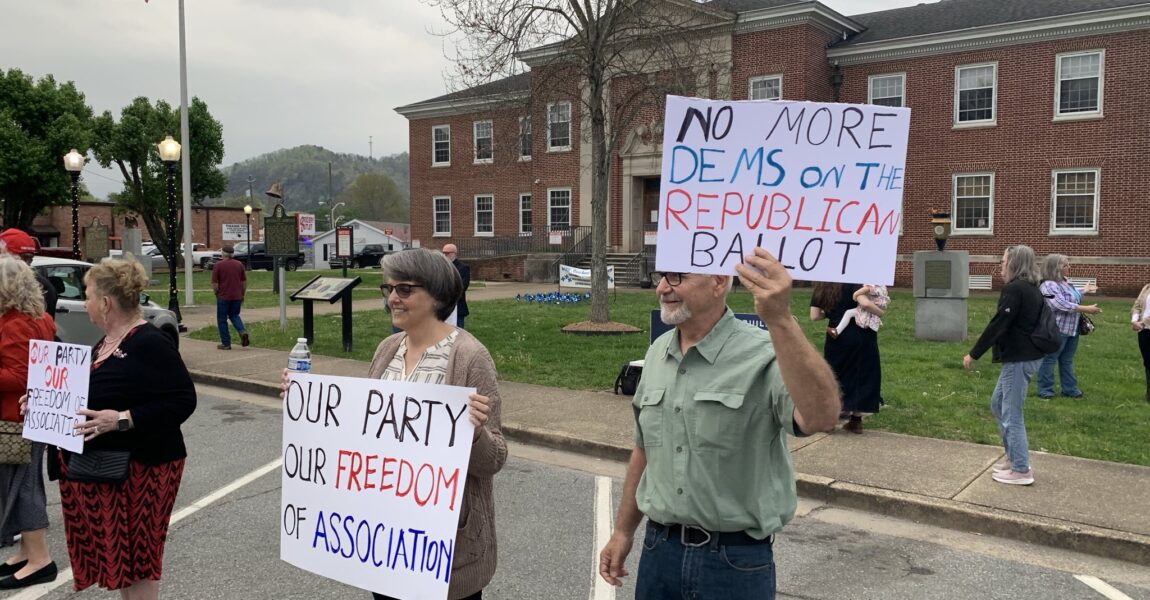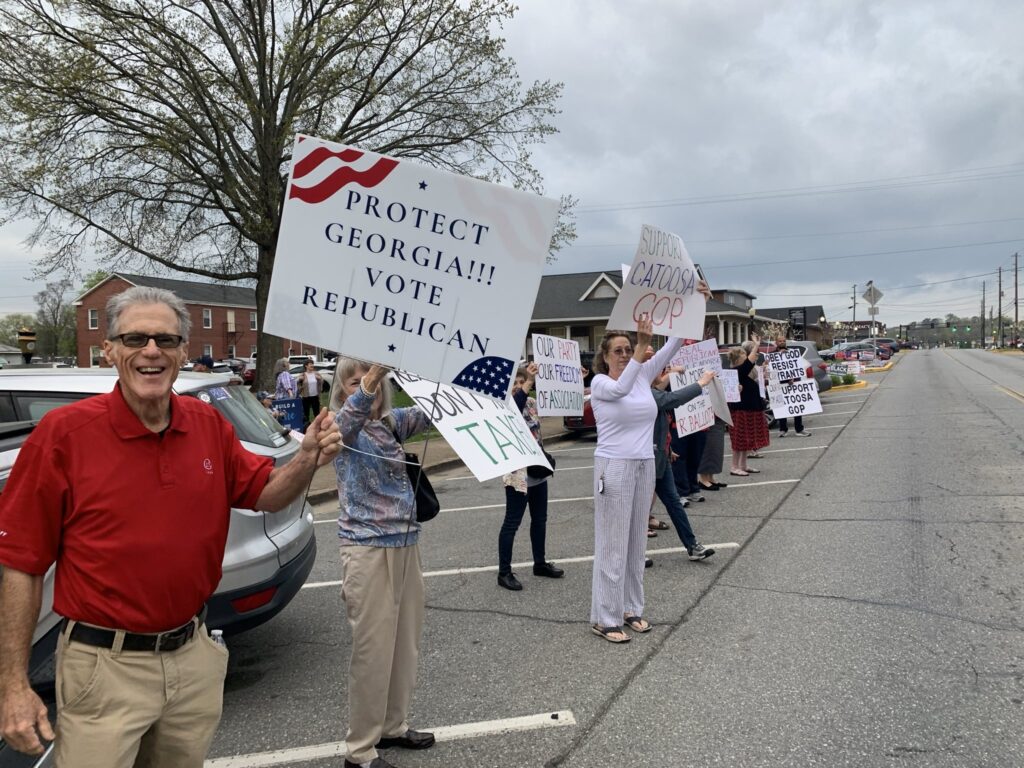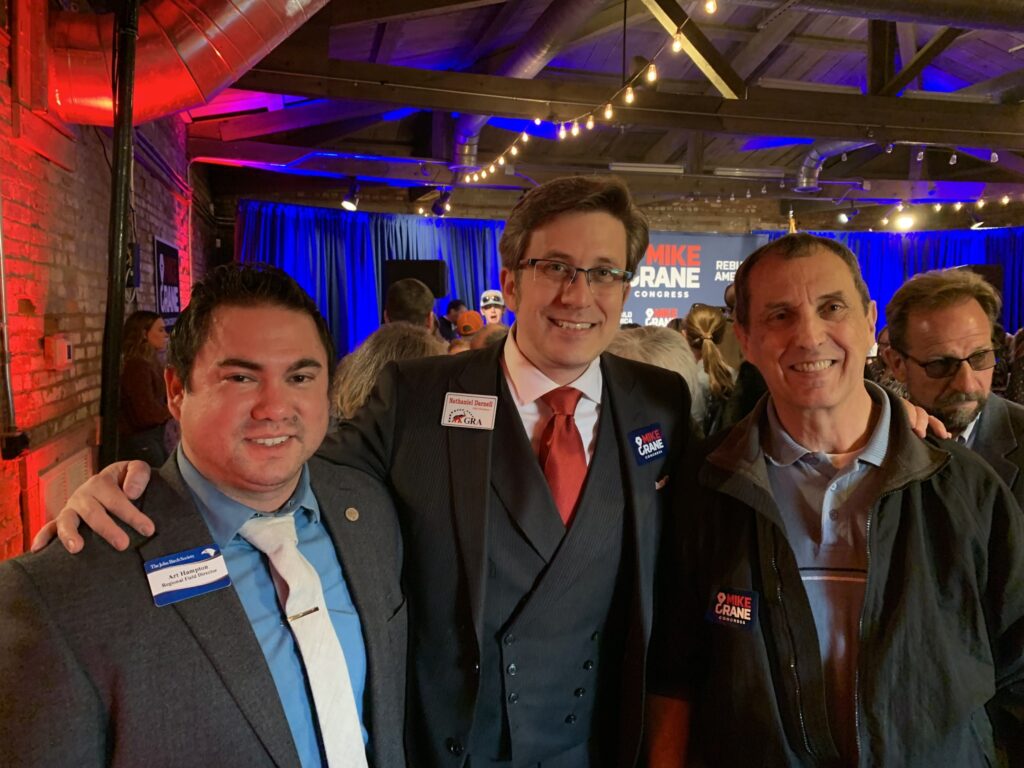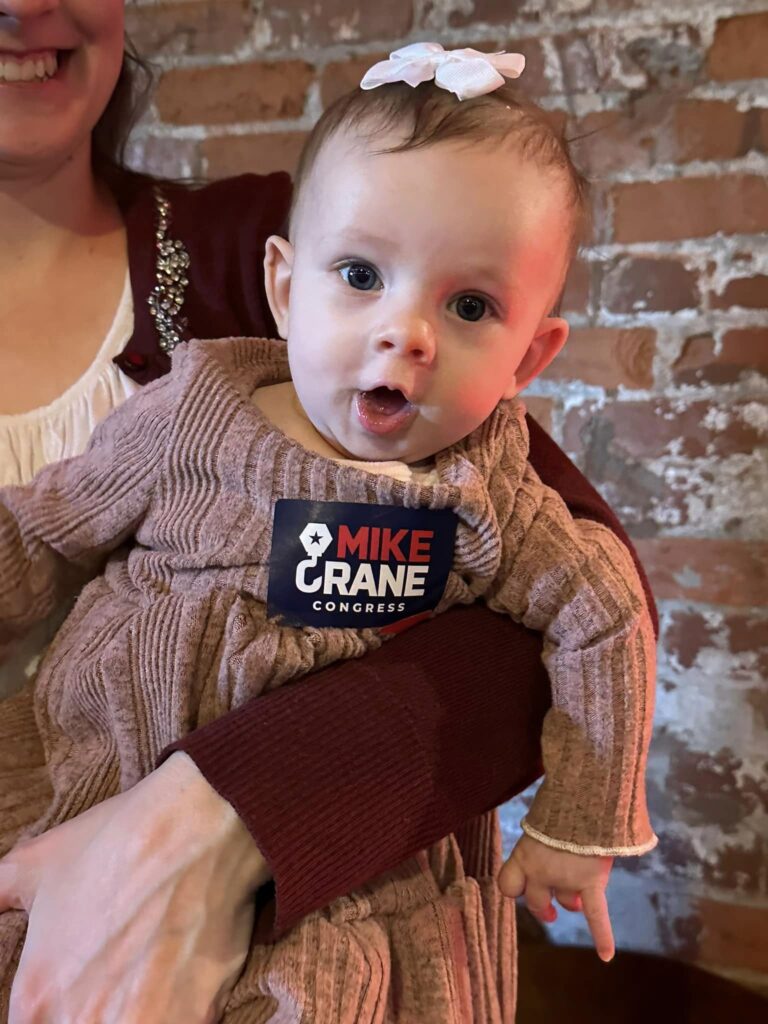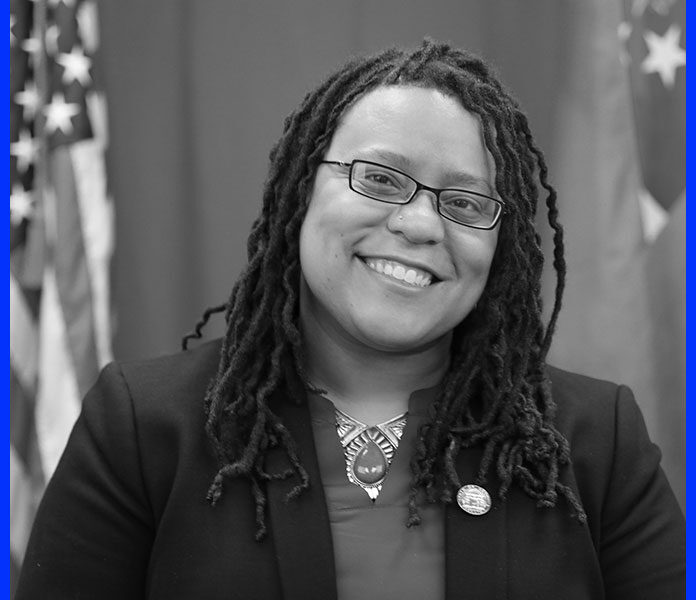Catoosa GOP Finally Gets Heard In Federal Court
Rome, GA — Wednesday, federal Judge Billy Ray heard arguments from the Catoosa GOP that the Catoosa Board of Elections acted unlawfully when they followed state Superior Court Judge Don W. Thompson‘s order to violate the Catoosa GOP’s 1st Amendment protected right to freedom of association by forcing four known RINO candidates onto the Republican primary ballot. These candidates have a record of implementing democrat policies (like raising taxes, prohibiting property rights, etc.) and opposing basic tenants of the Republican Party platform. For the first time, attorneys for the Catoosa GOP were allowed to present their legal arguments in the courtroom since Judge Thompson had precluded any oral arguments on the merits of the Catoosa GOP’s position in his courtroom in Ringgold.
At issue is whether private organizations (such as political parties, businesses, clubs, or churches) have the right to freely associate or disassociate with someone who does not share the standards of that private organization. Recent SCOTUS precedent on that question says political parties do have that right, according to the Catoosa GOP.

Unlike the courtroom in Ringgold, the federal courtroom in Rome hearing this case was not covered in police officers or following unusual measures in an effort to intimidate. Indeed, the federal courtroom did not appear to have a single officer in the room. Federal Judge Ray adopted a very inquisitive posture, asking numerous questions of attorneys, coming at the controversy from many angles, and musing aloud regarding the implications of different legal positions.
Judge Ray mentioned in the proceedings that the threats of jail time and exorbitant $1,000 per hour fines against the Catoosa GOP Executive Committee members that were imposed by Judge Don W. Thompson should, it seemed to him, no longer apply since that was from a civil case and the plaintiffs have already obtained their desired remedy. Time will tell if other judges in on-going proceedings agree with Judge Ray on that point.
“The crux of this case is really questioning the very essence of a political party,” said GRA NFRA Director Abigail Darnell. “If a political party plays nothing more than a superficial administrative role, rubber stamping every candidate with no regard to their beliefs or their record on public policy, then why have a political party at all?”

Attorneys Alex Johnson and David Oles (also the 11th Congressional District Chairman) were on hand to represent the Catoosa GOP, and Catoosa County government attorney Christopher Harris represented the Catoosa Board of Elections members. Harris also represents the county commissioners — three of which are also among the four rejected candidates — which, as an employee of the county, paid by those commissioners, appears to be a conflict of interest.
Harris made the argument that the Catoosa GOP procedures for vetting and qualifying candidates were “inconsistent” with the GA GOP state party rules. Attorney Alex Johnson pointed out that there is no “inconsistency” because the GA GOP State Party rules do not address county processes on this point, and certainly do not preclude county party’s vetting and refusing to qualify candidates who don’t demonstrate a track record of faithfulness to Republican Party platform principles. The Catoosa GOP rules, including the new accountability measures and candidate vetting process, were unanimously approved by the delegates at the Catoosa GOP County Convention after the rejected candidates filed their lawsuit.
Harris also argued that such an Accountability Rule was rejected by the GA GOP State Convention last year. When Judge Billy Ray asked attorney Alex Johnson about that event, Johnson pointed out that he was actually the delegate at the convention who had submitted the proposed Accountability Rule last year, and that that proposed Accountability Rule had nothing to do with county party organizations. He also pointed out that the rule was never actually allowed to be voted on at the convention since it was blocked in committee and the convention chairman did not allow the proposal to be brought up from the floor.
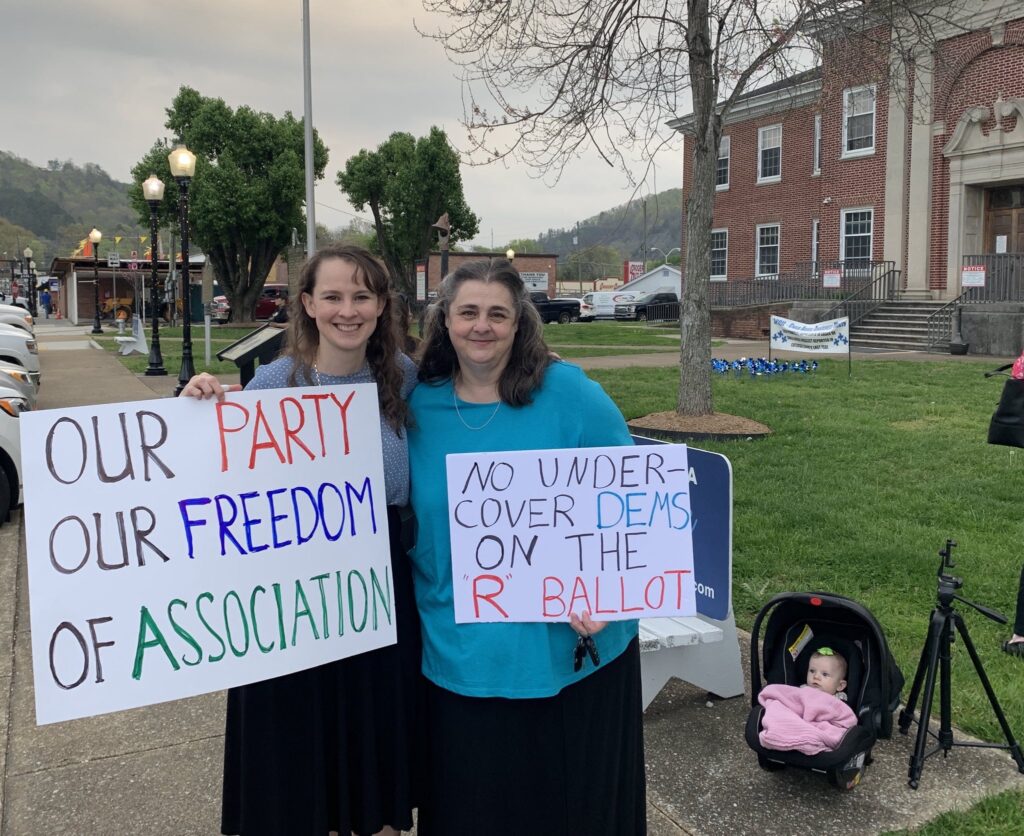
Far-left newspaper Atlanta Journal Constitution reporter Greg Bluestein was in the federal courtroom observing and incorrectly reported yesterday that Johnson’s proposed Accountability Rule would have given the GA GOP the power to reject candidates to state office. In actuality, the GA GOP already possesses the constitutional authority to reject candidates under the freedom of association — and has recently done so for the presidential ballot last year as well as for former K.K.K. clansman David Dukes when he attempted to run for president as a Republican in 1992. The proposed Accountability Rule from last year would have only provided a process for the delegates at a state convention to vote on potentially blocking a state candidate from running for future office as a Republican instead of that authority being seen as exclusively the domain of the GA GOP 28-person Executive Committee or the 180-person State Committee. According to the Call of the GA GOP, the state convention has a capacity this year of 2,641 delegates.

Federal Judge Ray allowed Johnson to chronicle how Judge Don W. Thompson had called an ex parte hearing with little notice to the attorneys on the Tuesday morning the week of candidate qualifying, and did not allow attorneys to present oral arguments on the First Amendment issue of right of association. Johnson delved deeply into the extensive case law from the United States Supreme Court which repeatedly applies that legal right specifically to political parties.
Judge Ray asked Johnson about the interplay between state law specifying the procedure for how candidates are qualified and the U.S. Constitution in the 1st Amendment. Attorneys for the four RINO candidates have argued that the state law does not specify that political parties have any discretion over qualifying candidates who appear and follow the process. Johnson argued that the state law must be seen to be in conformity with the First Amendment and not in conflict with it. If somehow the state law did prohibit freedom of association, Johnson pressed, the 1st Amendment from the U.S. Constitution must have supremacy over state law. “That’s what the Civil Rights movement was all about,” Johnson said.
The Catoosa GOP’s county committee voted unanimously to adopt the procedures in their organization’s rules for vetting and qualifying candidates. The members of that committee are elected every two years by the local activists in Catoosa County, and serve as the representatives of the Republican voters in that county. They are responsible for guarding the interests of the local Republican Party, says the Catoosa GOP, including upholding minimum standards of quality that Republican voters can rely on when they go to vote in the primaries. Approving a candidate for qualifying as a Republican operates as a stamp of approval that voters, who cannot often pay close attention to local government operations, can rely.
Catoosa GOP’s Muzzled Ballot Questions
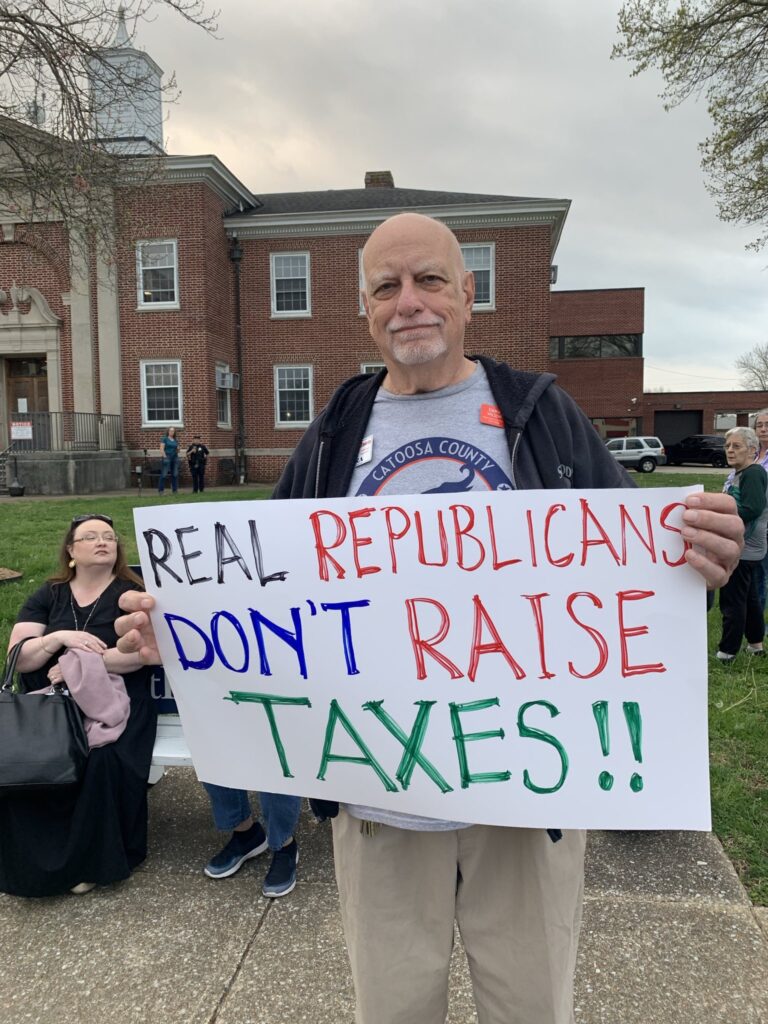
The hearing on Wednesday also addressed ballot questions the Catoosa GOP had submitted to the Catoosa Board of Elections to be included on the Catoosa Republican Primary ballot. Some of those questions inquired about voters’ awareness of the candidate qualifying controversy, and awareness of public votes of the County Commission and were not an example of defamation. County attorney Harris said that the Secretary of State’s office had told the local BOE to refuse to use the questions because, they argued, they were illegally “electioneering.” However, Harris admitted “in candor to the court” that the Secretary of State’s office called him and said they are no longer claiming the ballot questions are “electioneering” and that the decision rested solely with the Catoosa Elections Board. Judge Ray pointed out through his questions that the statute prohibiting “electioneering” says no “person” shall engage in that activity, and neither a printed ballot nor a voting machine are a legal person under that statute. He also said that the statute relating to qualifying questions from political parties says they “shall” be posted and do not give the Board of Elections much discretion on whether to post questions submitted or not.
“This is yet another atrocious example of bias and discrimination against the Catoosa GOP,” said Abigail Darnell. “If this illegal action is allowed to stand, it will demoralize GOP activists and discourage party participation across the state. I mean, why would I want to give unpaid volunteer hours to an organization just to be strong-armed by the government? Party activists shouldn’t be forced to conform to a government-approved message or government-forced association.”
Time is Ticking
The ballots will soon be finalized for the upcoming primary election in May.
Federal Judge Billy Ray pointed out that he has particular experience in the subject matter of the case since he was formerly a Republican State Senator from northeast Georgia from 1996 to 2002, so he was familiar with candidate qualifying procedures, and he had also formerly been a Gwinnett County GOP officer responsible for qualifying candidates. In 2002, Ray was appointed to the state superior court by out-going Democrat Governor Roy Barnes. Ten years later he was appointed by Republican Governor Nathan Deal to the Georgia Court of Appeals. In 2018, he was appointed by former President Donald Trump to the federal District Court for Northern Georgia.
Judge Ray cautioned at the conclusion of the proceeding that he would not be making any promises on how quickly he would decide on this case. He made it clear he did not want to be rushed, even though he was mindful that the ballots would soon be printed for the Catoosa Republican primary election in May. He also pointed out that even if the four candidates do end up on the ballot, the Catoosa GOP could still pursue monetary damages.


